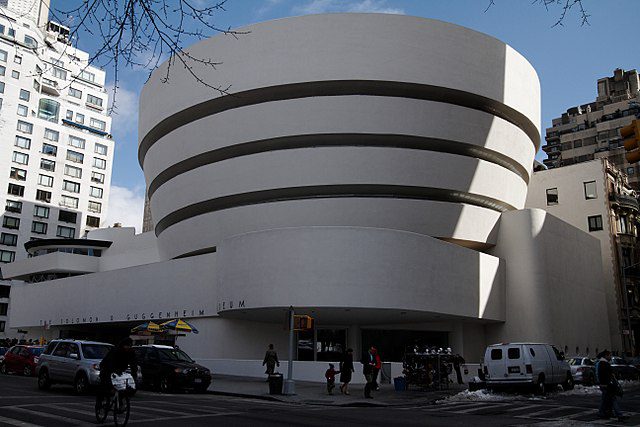Redefining the Museum, Feminism Today, and Mann against Hitler

The International Council of Museums wants to redefine what a museum is and does. I bet you can guess how: “For almost 50 years, the International Council of Museums (ICOM) has defined the museum as ‘a nonprofit institution’ that ‘acquires, conserves, researches, communicates, and exhibits the tangible and intangible heritage of humanity and its environment for the purposes of education, study, and enjoyment.’ But an updated version of the definition would incorporate mention of ‘human dignity and social justice,’ references which have split the consortium’s 40,000 professionals representing 20,000 museums across ideological lines.”
Oliver Traldi asks an unpopular question in his review of Wesley Yang’s The Souls of Yellow Folk and Kristen Roupenian’s You Know You Want This: Does male suffering matter?
Matt Rowland Hill reviews Salman Rushdie’s novel Quichotte: “Quichotte has all the verbal pyrotechnics and outlandish invention that will be familiar to readers of Rushdie’s fourteen previous novels, but at heart it is a serious and affecting tale about the irresistible pull of history. Both Quichotte and Brother have left India behind in an attempt to erase their origins and, by means of strenuous self-narration, invent new American lives. But, with shades of that archetypal American self-fashioner Jay Gatsby, each discovers ‘the ability of the past to insist, in spite of everything, on its right to return to haunt the present’ – and so they beat on, boats against the current.”
Thomas Mann’s war against Hitler: “In February 1938, Thomas Mann and his family sailed from Cherbourg, France to New York, where they were greeted by a throng of reporters and a film crew from the Paramount News Corporation. Mann, who had won the Nobel Prize in 1929 and appeared on the cover of Time in 1934, decried British prime minister Neville Chamberlain’s policy of appeasement and correctly predicted that Hitler would annex Austria forthwith. Later that day, Mann, after being asked whether he found exile a lonely state of affairs, responded, ‘It is hard to bear. But what makes it easier is the realization of the poisoned atmosphere in Germany. That makes it easier because it’s actually no loss. Where I am, there is Germany. I carry my German culture in me. I have contact with the world and I do not consider myself fallen.’ Like Bertolt Brecht, Lion Feuchtwanger and Arnold Schoenberg, Mann ended up living in a German enclave that became known as Weimar on the Pacific. Mann was not only the most prominent member of the exiles, but also the one who had probably traveled the furthest politically.”
Fred Siegel reviews a book about David Karr—a Communist, capitalist, Zionist, and spy for the KGB, as well as, he claimed, an FBI informant: “Karr—the man formerly known as Katz—started off in the 1930s as a young non-card carrying Communist writing for Party newspapers like The Daily Worker. In the early 1940s he spent a brief stint working for the Office of War Information (OWI). Government work came to an abrupt end in 1943 when he and several other OWI employees were called before the House Special Committee on Un-American Activities investigating suspected communists in the government and Karr testified under oath that he was actually an FBI informant before resigning from his post. Leaving the OWI, Karr was hired straight away as a legman for Drew Pearson, one of the most celebrated columnists of the post-WWII years. In the 1950s, the great age of corporate proxy wars, Karr became, for a time, a capitalist. In the 1960s, as he was moving though his third wife, he took up residence in Hollywood and became, for the first time, a passionate supporter of Israel. Come the 1970s as he moved towards his fourth marriage this time to a wealthy and culture Jewish French woman—he already had 5 children—Karr settled in Paris and signed on with the KGB while continuing to work as an international businessman. It was an extraordinary journey for a guy from Brooklyn who had just barely finished high school.”
Essay of the Day:
In Commentary, Naomi Schaefer Riley argues that Taffy Brodesser-Akner’s first novel, Fleishman Is in Trouble, and responses to the book show that all is not well in American motherhood:
“While Fleishman Is in Trouble is a comic novel, it is in fact the perfect representation of the existential crisis at the heart of fourth-wave feminism—which is itself a reaction to the fundamental problem posed by feminism’s success. The rage felt by Rachel and Libby and Amber Tamblyn and Brigid Schulte and the bride who is forced to make floral decisions by herself is a rage against a supposed unfairness that is not correctable. Feminism has already largely corrected everything it can possibly correct, including the behavior of men. So now what?
“Fourth-wave feminists are living through a period in which feminist dreams have become reality. And they are finding that reality unpleasant. They were sold a false bill of goods. It was a fantasy that if they did what they were supposed to do—get good grades, become successful in journalism or business, like Libby and Rachel—everything else would fall into place. But real life doesn’t work that way for anybody. You have an important powerful job that pays a lot of money? You’re not going to be able to spend a lot of time with your kids. You have crazy ambition? You’re going to feel like an impostor and be filled with anxiety about performance. And, evidently, if you’re a woman, you’re going to fantasize that men don’t have exactly these same problems, even when they do.”
Photo: Lake Como
Receive Prufrock in your inbox every weekday morning. Subscribe here.
Comments